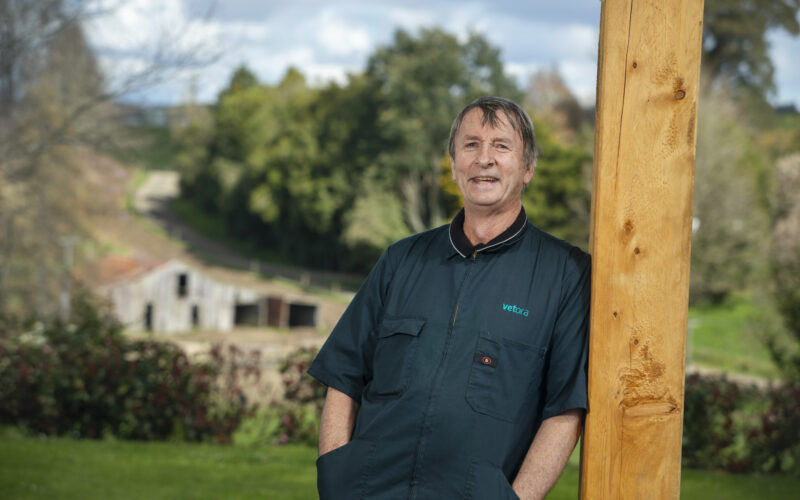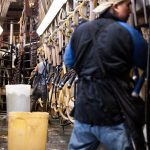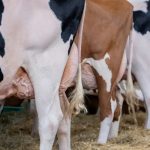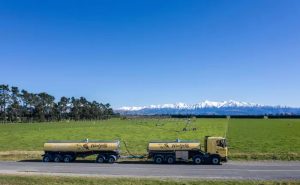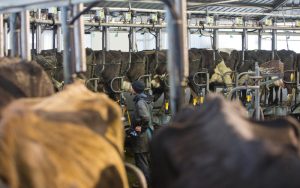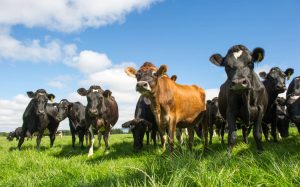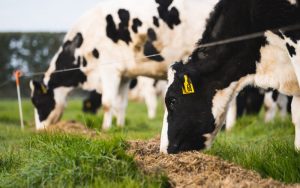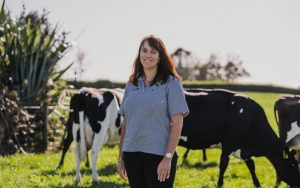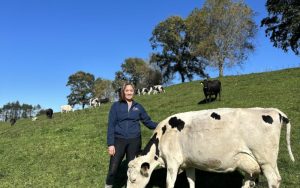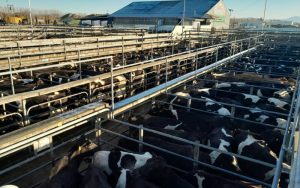
Veteran vet Bill Teague has practised for decades, and these days he’s training the next generation too.
Dairy vet Bill Teague has had some pretty unusual requests during callouts in his 43 years of practice. He vividly remembers the day one of his farm visits involved helping to fix a client’s wooden leg.
It’d taken Teague half an hour to drive to the war veteran’s farm in Waikato to inspect a cow.
“When I got there he told me there wasn’t actually much wrong with the cow, and that ordinarily he wouldn’t have called me out, but what he really needed was for me take his wooden leg to town because the strap was broken and he couldn’t leave the house,” said Teague.
The reliance on vets often extended beyond just clients who’d requested a call-out.
“In those days properties had shared telephone lines and if someone overheard that the vet was coming from town you could end up with a whole load of items that needed to be ferried in or out.”
From a very young age Teague knew he wanted to work with cows.
“My grandfather, Ralph Birdsall, grew up on a farm with bullocks and had been a school principal. He was employed as an agricultural advisor to the education department and his job was to engage children more with farming.
“It was him that set up the Calf Club movement in the Waikato in the late 1940s. That turned into a big thing and the schools still have agricultural days even now.
“He was also secretary of the Friesian Breeders Association and would take me off to the shows. I’d be roped in to lead his mates’ cows around the show ring and I have fond memories of the experiences and smells.
“As kids at those we’d all be leaning against cows while we sat and ate our lunches.”
On one occasion when he was about eight, he remembers his grandfather giving him the lead rope for a bull twice his size and probably 40 times his weight. His father had a fit when he spotted his young son in the ring.
“I always wanted to work with cows and from about 11 decided that being a vet would be pretty cool because I thought then the hours would be nine to five. Of course, as a vet it didn’t work out like that because three or four o’clock in the morning is often the best time to get contact with animals being milked.”
The deal sealer for his career choice was when at 15 he visited a friend’s farm and helped the vet deliver a calf during a caesarean.
“We got a live calf out of it and the cow was just fine. I thought I’ve got to do this!”
On qualifying from Massey University’s veterinarian course in 1981, he secured a job in Galatea, an hour south of Rotorua on the edge of the Urewera National Park, where he instantly became a dairy expert.
“My boss was a pet vet who didn’t know much more than me about cattle so we learnt together. Industry people talked to me, which wouldn’t have happened in a more established practice, so the isolation was good for my development. Back then you’d never ask your boss to come out and help, for example with a calving, you just got on and did it.”
In 1983 Teague shifted to a practice in Tokoroa, becoming a partner and shareholder there in 2001. The practice was sold to Vetora in 2017, with final handover 2019, and he’s now employed there to train new vets.
Among the career highlights are friendships and client relationships, but Teague also helped in pioneering research.
“Back in the ’90s neospora emerged, which was causing a lot of abortions. We blood tested about 600 cows four times a year, in conjunction with Massey University. We were doing leading-edge research which made breakthroughs that had implications around the world. It felt amazing to have been able to contribute.”
Over the years, changes in dairy farming practices altered his work.
“The bigger herds completely changed our jobs,” said Teague, who also kept a small number of beef cattle of his own for many years.
“When I first started, farms had 100 cows and they all had names. I’d do 15 jobs a day and see 15 different animals.
“Now farms have got 1000 cows and although you still cover individual sicknesses, it’s far more about herd medicine.”
Father of two Teague was president of the Dairy Cattle Vets branch of the New Zealand Vets Association and cows are very much still in the family’s blood. His daughter Sarah, who used to attend call-outs with him from the age of two, was managing a dairy farm with a herd of 900 by the age of 22. His grandchildren are now also involved in Calf Club.
One aspect of his job he’s always enjoyed, he said, is the variety.
“Every year’s different. Sometimes everybody wants to do more production because the payout’s up but the next year the payout might be low so they want to spend as little as possible. The year after there might be a drought, then something new’s discovered and you need to launch a whole new field of endeavour. It’s awesome, you never know what’s going to happen.”
You can now read the most important #news on #eDairyNews #Whatsapp channels!!!
🇺🇸 eDairy News INGLÊS: https://whatsapp.com/channel/0029VaKsjzGDTkJyIN6hcP1K
